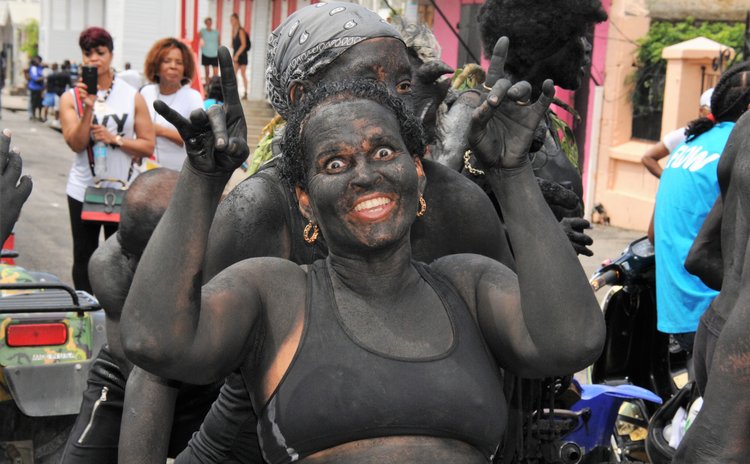Changes Dominicans seem to be unable to believe in

"Change will not come if we wait for some other person, or if we wait for some other time. We are the ones we've been waiting for. We are the change that we seek."
Barack Obama in his 2003 book "Dreams From My Father"
Dominicans hate change. There's no other simple, sensible explanation for this country's inertia when it comes to dealing with the problems and issues that have overwhelmed us for decades. We detest change, period.
We have resisted change for many decades: From a change of carnival's date to a change of government; from changing from subsistence agriculture to renaming of the island; from changing the ban of the creole language in parliament to changing the Constitution of Dominica; from changing of the electoral laws of Dominica to changing of the fundamentals of the Dominican economy. We have talked these issues to death, then we periodically resurrect them only to kill them again with too much talk and too little action. Here are three telling examples that support our hypothesis, that Dominicans hate change.
Firstly, let's talk again about changing the date of carnival. It is obvious that Dominica's carnival needs drastic changes, much more than changing the themes, if that festival is to survive to the next decade. There is also the urgent need for more funding to take the festival out of its current doldrums and become a serious competitor among Caribbean countries for scarce tourism dollars. We often hear the argument that Dominica's carnival cannot compete with Trinidad's but few countries in the world can, if they continue to spend a mere fraction of the amount that Trinidadians spend on carnival.
Over the past decade, certain sections of the Dominican public have been suggesting a new date for carnival. Over the last few years, the call reached a crescendo but the authorities have obviously decided that there will be no change; they seem satisfied with mediocrity or they are too scared of change.
The number of persons asking for that change has reduced significantly over the past two years- the change agents have given up the fight, apparently. Nevertheless, other islands have taken that bold decision and are reaping the rewards. In an article titled "The Business of Bacchanal" by Sharon Williams, the St. Lucia Hotel and Tourism Association makes the claim that "St. Lucia changed the date of carnival and made the festival a financial success story".
Williams writes: "St. Lucian carnival planners made a controversial decision, amidst much criticism from the Catholic Church, to change the date of the event. The goal was also to allow more people to come to St. Lucia to partake in the bacchanalia and boost the island's tourism arrivals".
The author added that "in 1999, after long drawn-out arguments for and against, the government changed the date from the pre-Lenten season to the summer month of July". The results were a 14.4% increase in visitor arrivals was recorded for that period with 2,360 visitors coming to St. Lucia for carnival.
Secondly, there's the issue of our inability to see the need to change our government. From independence 40 years ago to today, Dominicans have hated changing their governments, with the notable exception of the Edison James United Workers Party (UWP) administration that ruled from 1995 to 2000. As Dominicans prepare for another general election, there is the real prospect that the island would not have changed its government for 20 years.
To illustrate the fact that Dominicans hate changing their governments remember that the Dame Eugenia Charles' Dominica Freedom Party (DFP) administration ruled for 15 straight years until Dame Eugenia decided she had had enough and so she nominated Alleyne Carbon of Cottage to take over the leadership of the DFP. That triggered a mighty implosion of the Freedom Party.
Thirdly, there's the matter of the change of name of the country, an issue we have debated since the Seventies but our government and our people have been too scared and indecisive to do anything about it.
As we have hesitated for many decades, other countries, cities and states have changed names as the following illustrates: Peking has become Beijing; Siam became Thailand; Gold Coast became Ghana; Ceylon became Sri Lanka; Constantinople became Istanbul; Bombay became Mumbai; Zaire became the Democratic Republic of Congo; Burma became Myanmar; Rhodesia became Zimbabwe; German South West Africa became Namibia; Abyssinia became Ethiopia; Persia became Iran; Bechuanaland became Botswana; Nyasaland became Malawi; Cape Verde—a nation of 10 islands and a half million people in the central Atlantic Ocean that we hear about frequently during the active hurricane season—became "Cabo Verde".
The point is changing the names of countries has not been difficult, even for countries much poorer than Dominica; so cost is a poor excuse for not seriously considering a change of name for Dominica. If we think change is costly have we considered the cost of not changing and the persistent negative publicity and confusion Dominica has absorbed because of the mix-up of two islands in the Caribbean being referred to loosely as "Dominica" -the Dominican Republic and Dominica?
"I am from Dominica, not the Dominican Republic..." Dominicans have been saying for decades before introducing themselves as Dominicans. In the past, mail intended for Dominica was invariably posted to the Spanish-speaking Dominican Republic. The cost to tourism has been immeasurably high yet this name confusion persists.
So why is it so difficult to change Dominica's name to "Nature Isle", "Dominique", or "Waitukubuli"? It is obvious that Dominicans must learn to embrace necessary change if we aspire to move forward, to catch up with Antigua and St. Lucia and Grenada and the rest of the world.




